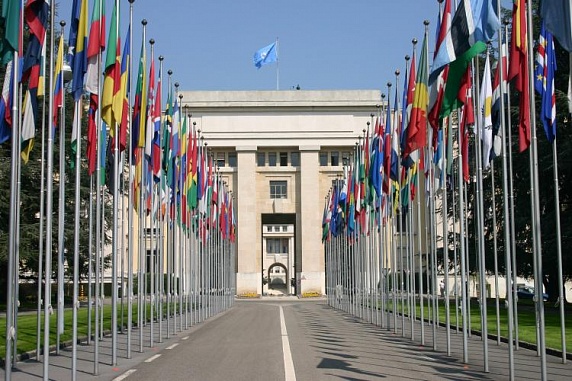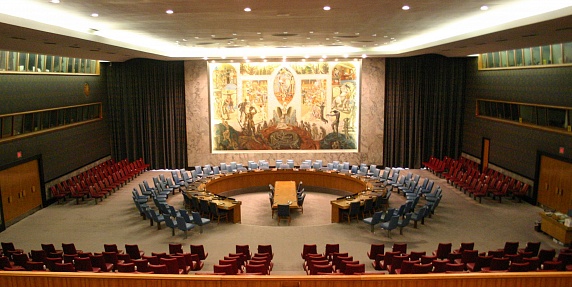 ONU
ONU
On the Fourth Special Meeting of the UNSC Counter-Terrorism Committee with International, Regional and Sub-Regional Organizations in Almaty (January 26-27, 2005)
Unofficial translation from Russian
The fourth meeting of the Counter-Terrorism Committee (CTC) of the UN Security Council with international, regional and sub-regional organizations was held in Almaty on January 26-27.
A co-organizer of this CTC field meeting was for the first time the Commonwealth of Independent States with the active organizational support of Kazakhstan. The Russian delegation was led by Andrei Denisov, Permanent Representative of the Russian Federation to the UN and CTC Chairman. Among the participants were Vladimir Rushailo, Chairman of the Executive Committee of the CIS; Javier Ruperez, Head of the Counter-Terrorism Executive Directorate of the UN; Nikolai Bordyuzha, Secretary General of the Collective Security Treaty Organization (CSTO); Vyacheslav Kasymov, Director of the Executive Committee of the SCO Regional Antiterrorist Structure; Viktor Zubkov, Chairman of the Eurasian Group for Counteraction Against the Legalization of Criminal Proceeds and Financing of Terrorism; more than 46 international, regional and sub-regional organizations and more than 30 states. President Nursultan Nazarbayev of Kazakhstan spoke at the opening of the session.
The meeting was an important landmark in the Russian chairmanship's pursuit of a line on strengthening the potential and the coordinating role of the CTC in international efforts to combat terrorism. It helped to carry on the format of the Committee's working dialogue with the international and regional partners, tying it to the process of CTC reform and the adoption of new forms and methods in its activity.
Its main focus was on issues of counteraction against the financing of terrorism, on the relation of bilateral, regional and universal instruments of combating terror and on cooperation in the area of transport security.
The meeting imparted a new impetus to the process of the formation of an effective system of international antiterrorist and anticriminal cooperation, to the development of interaction between international structures and helped exchange advanced experience, inter alia with a view to implementing the provisions of the twelve universal antiterrorist conventions, concluded under the aegis of the UN, as well as Resolutions 1373 (2001), 1540 (2004), and 1566 (2004) of the UN Security Council and its other relevant decisions. The meeting particularly underscored the task of arranging coordination with the CTC and of more actively involving regional organizations in the work with states for the purpose of assisting them in the process of the ratification and implementation of those conventions as well as the UNSC resolutions.
The meeting participants devoted priority attention to the launching soon of the practical activity of the Counter-Terrorism Directorate of the CTC.
The participants from the CIS shared the experience accumulated by the Commonwealth in the struggle against terrorism, and outlined the prospects for the further enhancement of its antiterrorist potential.
On the results of the meeting a CTC Plan of Action is planned to be worked out and adopted. A final Joint Statement of the event's participants was approved (posted on the Russian MFA's Web site).
January 29, 2005









